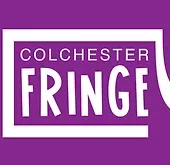Brighton Year-Round 2025
Inspector Morse: House of Ghosts
Melting Pot and Birmingham Rep

Genre: Adaptation, Drama, Mainstream Theatre, Theatre
Venue: Theatre Royal Brighton
Festival: Brighton Year-Round
Low Down
Something is rotten in the city of Oxford. And only one man – here Tom Chambers – thinks he can set it right. Inspector Morse: House of Ghosts arrives at Theatre Royal Brighton, directed by Anthony Banks till October 25.
For Morse fans, this is still a low-yield vintage that can mature. Enjoy, and decide if Cullen’s truth is yours too. I keep revolving it in my mind’s eye.
Review
Hamlet’s overacting. Ophelia comes on subdued then collapses. Someone has seen it coming. Something is rotten in the city of Oxford. And only one man – here Tom Chambers – thinks he can set it right. Inspector Morse: House of Ghosts arrives at Theatre Royal Brighton, directed by Anthony Banks till October 25.
If this seems like a missing TV script that should have been made, in a sense it is. Colin Dexter’s Morse novels were dramatized by a team including the talented Alma Cullen (1938-2021), mostly a TV script writer. But Cullen wrote this as a play in 2010, and it’s now been fully dramatised and toured in a Melting Pot and Birmingham Rep production.
It’s 1987. Morse is compelled to return to his Class of 1962, the theatre company thick with his Oxford contemporaries who judged him the most brilliant; and are baffled by his career decision. They might resent him, he disdains them rather too much. And with Ophelia or rather Rebecca (Eliza Teale, subdued here then a police officer) lying bloodied in the middle of a shocked theatre, all the director can think of is who might replace this apparently brilliant actor. Morse closes the production down for at least a few days. His superior deems it suicide, and Morse is having none of it. It is indeed rotten in ways that Morse feels but when the convolutions land, they surprise even him. Sometimes digging does no good.
There’s a couple of theatrical moments I won’t spoil, and a concurrent scene which sparks the theatrical space in ways I’d love to have seen more of.
Do I believe the ultimate protagonist’s motivations? No, from all that’s been set up before. It’s not so unusual, and I’ve known two people in that situation. People might judge differently. There’s good individual scenes and scattered jokes with a wink to the future, that prove Morse is right to be sceptical about computing error; and the lament for the lack of a portable phone (they were around, but brick-sized).
Suffice to say the plot’s almost unguessable though one major theme on parenting was apparent early on. There’s a missing offstage Irish woman who only gets found offstage. We could have done with her. And a doubling from a consummate actor which doesn’t work because little care has gone into rendering him physically different. That, with fight captain Josh Katembala as part of the ensemble with little to do, seems an underuse of a couple of actors, when two more distinct parts might have been created.
Chambers compels with the right gestures, clearly studied from John Thaw, not mimicking him; the whole time his voice, subdued, draws us in. Indeed Chambers’ Morse and his old friend now Professor Ellen (Teresa Banham) are the most truthful and compelling characters here. Banham’s not ideally clear and micing/sound issues need separate treatment. Banham gentle parrying response to Morse’s old passion for her, underscores someone circling the dramas she used to play in with insight and telling restraint.
Robert Mountford’s theatre director Lawrence is an almost unbelievably sadistic – and promiscuous – brute. Mountford also inhabits another contemporary. This is Monsignor Paul, who like Morse gives up Oxford acting, in his case for the Catholic priesthood. Paul has history with Ellen too. Eminence grise or greasy climber? Luckily this is the exceptional Mountford who’s graced classic productions at Guildford, Jermyn Street and Orange Tree. With cut-through vocal clarity, Mountford‘s particularly strong on braggadocio roles with inwardness, though Lawrence has none (it works roughly, despite Cullen’s stereotype), and Paul no braggadocio. Even Mountford with contrasting characters can’t do much with slicked hair and a pair of specs.
Tachia Newall’s Lewis is at least clear, and speaks downstage a lot. He needn’t fear more sidelong forays since his voice carries, often loudly. Newall brings warmth and a better challenge to Morse than Lewis is sometimes allowed, though I miss what dogged musing he might bring. This can easily settle. Lawrence’s American wife has finally managed pregnancy – she knows she’s paradoxically not the only one – and Olivia Onyehara delivers the entitled but not unfeeling Harriet with aplomb, lighting a few scenes. Charlotte Randle’s Verity – now Gertrude, one of the 1962 class and drinking heavily – is something of a delight. Whether she’s telling home truths to Spin Glancy’s Justin (the overegged hamlet), Morse whom she once propositioned, or anyone, Randle’s portrayal of the drink-ruined actor is believable. As is James Gladdon’s Freddy. The “Geordie bit of rough” who Rebecca left might harbour a grudge. He makes a credible hot-headed Laertes type, though mainly we have him fearful of being sacked by Lawrence (he’s not alone). Glancy as the insecure Justin is a quivering conviction. As Hamlet, it’s not clear if his overacting is meant to be a fine Hamlet (as the script says) or a parody. Banks has decided it comes across as the latter as contrast to his bullied and revengeful Justin self; no reflection on Glancy, though our expectations should be adjusted.
Colin Richmond’s flexible prop-fluid set – fluently moved about by the cast – allows you to peep through the wings, and his costumes hint past 1987. The stained-glass memorial service with Lizzie Powell’s lighting renders some atmosphere to the mainly unadorned set. Good fight direction from Sam Lyon-Behan too.
Beth Duke is an ingenious sound designer. Using mostly Schubert, she starts with a song, moves to his ninth and eight symphonies; and later to the song ‘The Miller and the Brook’ (about terminally hopeless love, felicitous here) which she magically transforms back to the Barrington Pheloung theme that punctuates the sound-world like a comfort blanket. For Morse’s opera obsession, here’s a burst of the Countess from Mozart’s Marriage of Figaro. Apart from an odd use of Wagner’s Meistersingers prelude (perhaps because it is pompous) in a sword-fighting rehearsal, Duke’s compositional instincts are absolutely on-point. Something has gone wrong though. That opening sequence blares out, and doesn’t improve much later. Add to that deafening roar the almost inaudible phone rings and the lack of proper micing that makes some actors indistinct, and all is not well in the ministry of sound. By the second performance things will have improved.
The play’s often conceived in short filmic scenes. Ultimately this makes for a more satisfying TV script, and one might imagine Cullen’s writing landing more atmospherically and altogether more compellingly if Shaun Evans returned one last time as a link between Endeavour and Morse. As it is, the sound, the awkward doubling and slight underuse of two actors when we needed two more roles, and the genre itself doesn’t realise Cullen’s potential. There have been less believable denouements in the franchise, but the rationale, however ingeniously asserted, doesn’t land. At least two, perhaps three characters don’t seem capable of what they might do.
Banks is highly respected. So with a talented team not yet settled, there’s a way to shape their ends, rough-hew them how they will. This is though fresh Morse from one of the team, and its two hours didn’t drag. Chambers and Banham make a compelling duet in their brief scenes. For Morse fans, this is still a low-yield vintage that can mature. On first night, voltages were misplaced. You’ll see a clearer, cleaner production. Enjoy, and decide if Cullen’s truth is yours too. I keep revolving it in my mind’s eye.
Casting Director Ginny Schiller CDG, Production Manager Toby P Darvill for Production Solutions Group, Props Supervisor Kate Margretts, Assistant Director Josh Parr.
CSM Sami Wood, DSM Lizzie Hodge, ASM El Waldock, LX1 Callum Bruce, Sound 1 Angus Wu, Wardrobe Mistress Natasha Hancock, Tech Swing Fi Britton, Fight Captain Josh Katembala.




























